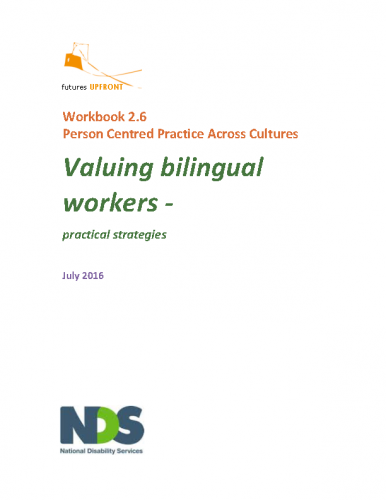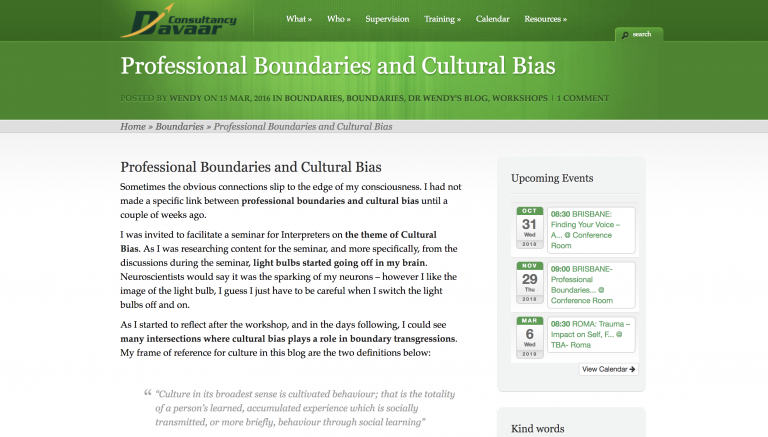Choice and Control
|
In the beginning of this video we see Halima and Shinila talk about how they work together. Shinila says that Halima is much more confident in her own abilities and is starting to recognise her own strengths. Halima is now articulating her own goals and what she wants to do.
|
|
Enabling choice and control is critical in working alongside people with disability from any culture and the three woman show us how it can be done.
Bilingual/Bicultural Workers
If you watched Malek’s story and followed some of the learning, you would understand the importance of interpreters. In this video you hear from Saida, who not only acts as an interpreter, but also as a cross-cultural guide. She guides Halima and makes her feel safe in exploring her own community, as well as the mainstream Australian community. Saida is also a guide for Shinila, assisting Shinila to understand more deeply about Halima’s culture and experiences.
Professional Boundaries
We can see how important the close relationship between Shinila and Halima is to Halima and to her progress. We can also hear Shinila talking about the relationship and about the need for professional boundaries. Shinila is conscious of her own values and those of her organisations, emphasising a point that has been identified as critical by many other people: the intersection of professional boundaries and cultural bias.
As we are sure you have come to appreciate through your learning so far, cross-cultural work is not ‘black or white’ and there are no simplistic answers to the question of what exactly professional boundaries are and what is and is not appropriate within a cross cultural context.
|
To read more check out this article: https://davaar.com.au/dr-wendys-blog/professional-boundaries-cultural-bias/
|
Lastly, we encourage you to watch Hossein and Zorica and learn more about the importance of reflective practice as a tool to increase self-awareness when working cross culturally.
I acknowledge that my work is conducted on the land of Aboriginal and Torres Strait Islander nations. I pay my respects to Elders past, present and future, for they hold the memories, traditions, Cultures and aspirations of Aboriginal and Torres Strait Islander communities. Sovereignty was never ceded.
|
futures Upfront
PO BOX 882, Marrickville NSW 1475 Phone: (+61) 0468 312 515 Email: i[email protected] |
|
© Copyright 2021 futures Upfront


